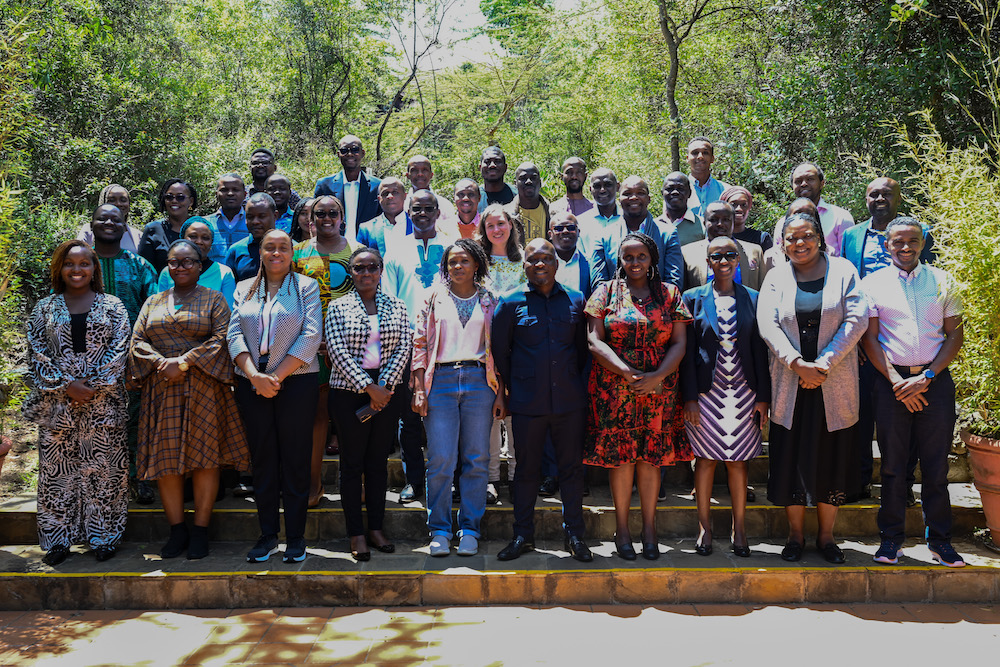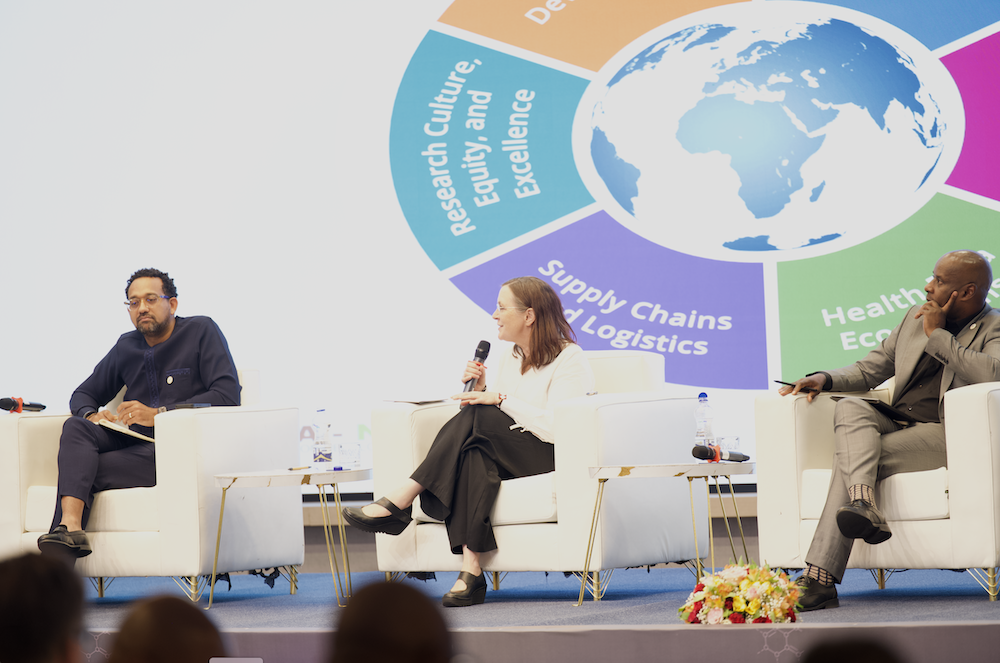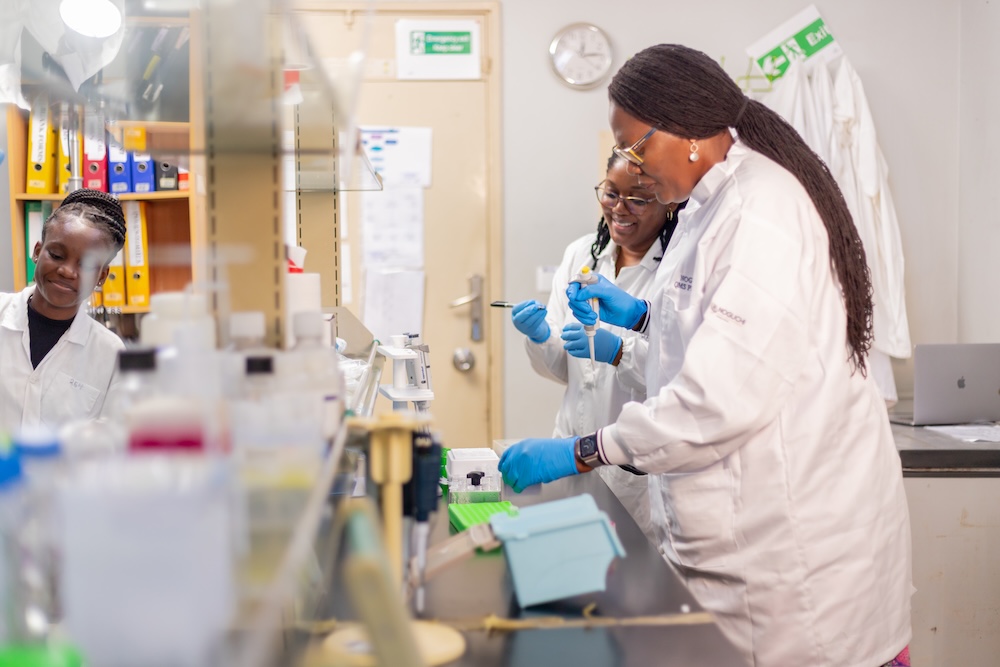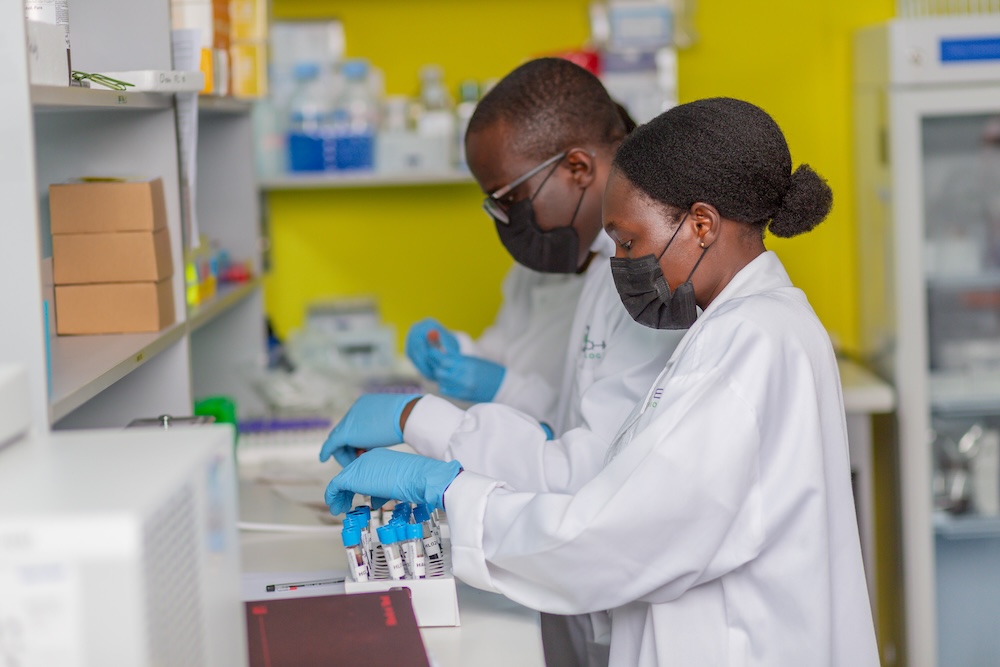
Media Centre
$2.1 million boost to African led research on climate and agriculture, and safer contraceptives
Monday, February 12, 2024

11 African researchers were today announced as recipients of key grants under the Grand Challenges Africa, a flagship initiative of the Science for Africa Foundation with support from the Bill and Melinda Gates Foundation. The grants aim to propel their innovative research in climate adaptation for agriculture, and in the development of safer, easier to access and use contraceptives.
The grants awarded to seven male and four female innovators drawn from research institutions in Benin, Gambia, Ghana, Kenya, Ethiopia, Nigeria, Rwanda, Tanzania, and Senegal represent a diverse range of expertise across the African continent and equally diverse range of research, from the use of underutilised crops that are more resilient to climate change to vaginal herbal contraceptive products with reduced irritations to the vagina and a new technology that promotes thickening of cervical mucus to build options in contraceptives. These projects, which showcase the power of African led research and innovation to drive positive change globally, were announced at a two-day event to mark the start of their GC Africa grants.
"Grand Challenges Africa grants aim to empower researchers to address challenges head-on, fostering a resilient and sustainable future for the entire continent," said Dr. Moses Alobo, SFA Foundation Head of Programmes for Science Based Products and the Programme Manager, Grand Challenges Africa.
Sustaining agricultural productivity
Under the GC Africa ‘African Agriculture Climate Adaptation Research System’ funding scheme $1.1 million is being given to eight awardees in Benin, Gambia, Ghana, Ethiopia, Rwanda, Senegal, Tanzania, and Uganda for two-year grants worth up to $200,000 each to advance their pioneering work contributing to a more sustainable future for the continent. This announcement comes at a critical time when the global community is grappling with the far-reaching impacts of climate change, and novel solutions are urgently needed.
In their declarations during the Community of Parties (COP) 28, Heads of States from 161 countries across the globe reaffirmed their commitment to achieve all the long term goals in the 2015 Paris agreement that affirms the need for agriculture and food systems to adapt and transform accordingly in response to climate change imperatives.A recent study by World Meteorological Organization and the United Kingdom Meteorological office the revealed that there’s a 66% chance of the annual average near surface global temperature to rise above 1.5°C in the next year a figure above the pre-industrial levels. Africa is particularly vulnerable, with rising temperatures, changing precipitation patterns, and increased frequency of extreme weather events.
"This grant opens doors to unprecedented opportunities for research and innovation.We aim to develop a robust dataset on the agro-morphological and genetic characteristics of millet varieties resistant to the current and future climate in Senegal, a map of adapted areas and an open access platform for knowledge sharing with stakeholders," said Diarietou Sambakhe, innovator,Centre d’Etudes Régional pour l’Amélioration de l’Adaptation à la Sécheresse (CERAAS) in Senegal and also a recipient of the climate and agriculture funding.
Advancing drug discovery for reproductive health
Additionally, $1 million has been given for the ‘Strengthening Contraceptive Research and Development (R&D) Ecosystem in Africa: Accelerating Innovations in Non-Hormonal Contraception for Women’ funding scheme to three researchers in Kenya (1) and Nigeria (2) to develop non-hormonal contraceptives that are safe, effective, easy-to-access, discreet, convenient. The researchers received grants worth up to $350 000 each. The two Nigerian researchers both come from the University of Lagos (UNILAG) which means the institution has received $700,000 in total from the GC Africa grants. Almost half of the pregnancies in low- and middle-income communities, 111 million annually, are unintended with over 75% occurring among women who seek to avoid pregnancy but fail to do so due to lack of access to modern contraceptive options. Where women can access the contraceptives, the side effects brought on by the hormones they contain e result in bleeding changes— longer/heavier periods, spotting between periods, and amenorrhea— leading women to discontinue their use. In its strategy on research for health ,The World Health Organization (WHO) also recognises the importance of research in drug development, especially in the context of global health challenges. Under the goal of the strategy priorities aim to champion research addressing health prioritisation to respond to various health needs unique to different populations.
“The support from Grand Challenges Africa underscores the importance of exploring innovative and accessible options for reproductive health and this grant will significantly propel our efforts in advancing research on safer non-hormonal drug contraceptives. This will not only empower effective individual choices but also ensure prioritisation of their well-being and autonomy in family planning,” said Mutiat Ibrahim, Researcher, University of Lagos in Nigeria and also a recipient of the non-hormonal contraceptives.
Read more about the grantees and their research here
Media Contact
Davies Mbela, [email protected] I +254726604720



